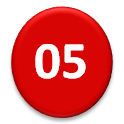Personal accounts
can offer a window into other people's passions. Part of the joy of reading
nonfiction is that one gets to know about these very real experiences even if
one doesn't share them. In Reading the OED Ammon Shea gives us an account of
him reading every single word from the Oxford English Dictionary.
Alphabetically, each
letter contains his observations on reading and owning dictionaries in general
and the OED in particular, and a list of words starting with the letter in turn
that for a number of reasons he finds notable, funny, unexplainable, etc. Of both groups I stay with the anecdotal over
the lists for the human element. My favorite parts were him reading in the
basement of a college library and talking of mice and nonexistent rats, his
views on the 'library people' and the prodigious amounts coffee he drinks
which should deserve part of the credit for pulling the project through. The
lists of words for their part never really caught on with me, but were not
boring either. On the practical side I'm quite sure that I'll not be using any
of them soon (except zugzwang which already is part of my vocabulary).
It is perhaps
unavoidable to compare this one with AJ Jacobs' The
Know it All in which the project was to read the whole Encyclopedia
Britannica and relate what was like. Reading the OED doesn't capture Jacobs'
charm and spontaneity, but there is something more endearing in Shea's exploit.
Jacobs loves knowledge; Shea loves words and the dictionary, the medium
itself.
Comparing both
accounts, Shea has the tougher bone. Part of the challenge of the OED's own
physical being. It is large and heavy; the font small and the words dense; the
citations abundant and in older English in large proportion. Along the way Shea describes the various
pains and aches he develops from reading too much. I feel amazed and slightly
horrified at what he puts himself through; nonetheless, he loves every second of
it.
I believe that
Jacobs' project ultimately fails though because of its unsystematicity. He goes
through the material alright but without an overarching plan for organization,
use and retention. Of course, had he done
so, he'd probably still be at it and we wouldn't have his book. Shea on the
other hand just wants to be delighted and share and by both counts he
succeeds (for my part I'm casting my lot
with the Great Books of which we'll talk next time).
Would I recommend
you go buy it? Can't really. For all its virtues it still is a niche account.
His enthusiasm for dictionaries and words comes across, but didn't win me
entirely over. I still find the whole project extraordinary. Reading the
OED has its place, but that would be after the The Know it All, or instead of, if you love words over just
facts.
(I've decided to
take up on one challenge Shea puts forth in this book, and do some stunt
reporting of my own. We'll talk about that in a couple months' time)












0 comments:
Post a Comment